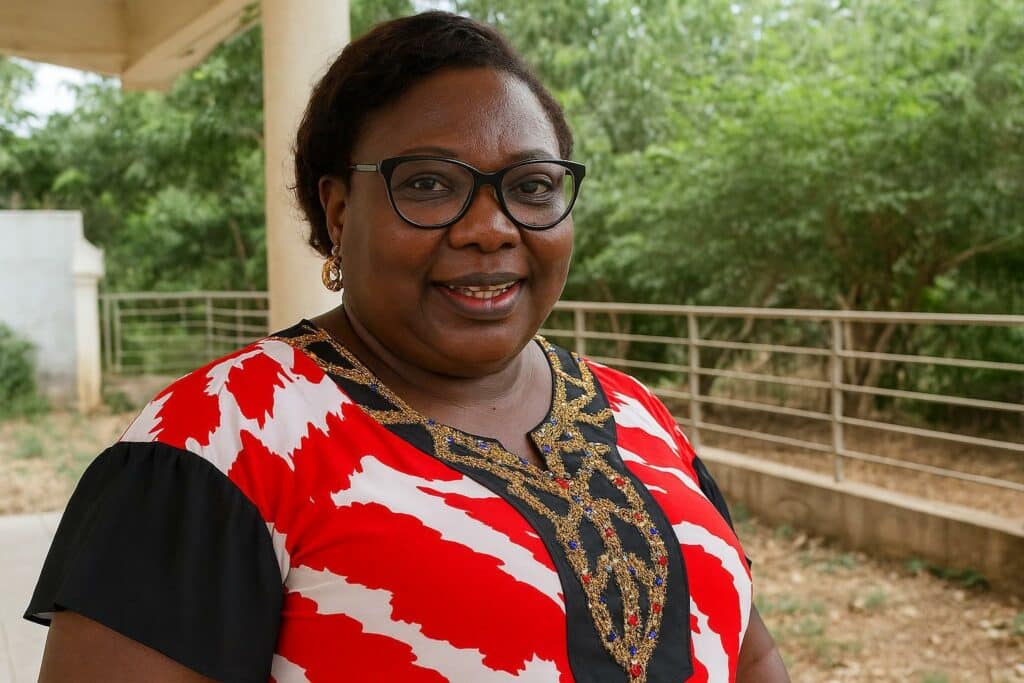A Pointe-Noire Appeal Gains National Echo
When Aimée Clarisse Abambila quietly founded the Association des femmes dévouées (AFD) in March 2021, few in Brazzaville’s political circles imagined that the modest initiative would, two years later, command the attention of the highest offices of state. Yet the open letter the NGO released this month, addressed to President Denis Sassou Nguesso, has rapidly travelled far beyond Pointe-Noire, sparking commentary on radio panels and in faculty lounges alike. Its tone is respectful but resolute: AFD urges the head of state to translate the egalitarian spirit of Article 17 of the 2015 Constitution into binding electoral practice before campaigning for the March 2026 presidential poll formally begins.
Constitutional Promise versus Electoral Reality
Article 17 unambiguously affirms that “woman shall enjoy the same rights as man” and instructs lawmakers to guarantee parity. In 2016, the legislature amended the electoral code to introduce a 30 percent minimum for women on local lists, mirroring targets adopted by Cameroon and Gabon. Yet in the 2022 municipal cycle women accounted for barely 18 percent of elected councillors, according to the Network of Congolese Local Authorities. Nationally, data compiled by the Inter-Parliamentary Union place women’s representation in the National Assembly at 17 percent, below the 26 percent continental average. For the AFD, these numbers reveal a gap that can no longer be attributed to “phase-in” periods.
Strategic Timing Ahead of the 2026 Presidential Race
AFD’s leadership openly acknowledges that the electoral calendar shaped its communication choice. With political parties already aligning their congressional timetables toward 2025, an intervention in 2024 offers sufficient time for consultation without appearing partisan. “We wanted to start a constructive dialogue while the atmosphere is still calm,” Abambila told our newsroom. Diplomatic observers describe the tactic as calculated yet courteous: by writing directly to the President—rather than staging protests—the association places its trust in existing institutions and avoids confrontational optics.
Signals of Receptiveness from State Institutions
Early reactions suggest that Brazzaville is not closing the door. Senate President Pierre Ngolo held a two-hour session with the delegation and, according to participants, “took note” of proposed enforcement decrees. In the executive branch, the Ministry of Promotion of Women, reporting in its 2023 review, highlighted ongoing work with UN Women on model regulations that would operationalise Article 17 across ministries. Government advisers point out that President Sassou Nguesso endorsed the African Union’s 50-50 agenda at the Addis Ababa summit in 2020 and regularly includes female ministers in strategic portfolios such as planning, labour and hydrocarbons. “The President has shown constant sensitivity to gender issues; the current discussion is mostly about legal technique,” a senior official commented.
Legal Engineering: From Principles to Coercive Mechanisms
AFD’s memorandum details two avenues. First, it calls for promulgation of specific decrees clarifying sanctions for non-compliance with candidate-list quotas at every level, inspired by Rwanda’s model where lists are rejected if parity thresholds are not met. Second, it suggests revising Article 67 of the electoral code so that financial support from the state to parties becomes conditional on measurable advances in gender representation. Experts from the University of Marien Ngouabi note that neither proposal contradicts existing constitutional jurisprudence; rather, they would give teeth to provisions already in force.
Regional Benchmarks and International Optics
Within Central Africa, Equatorial Guinea recently raised its quota for women in parliament to 35 percent, while Cameroon has introduced compulsory parity for municipal executives. These developments are not lost on investors who increasingly integrate gender-governance indicators into risk assessments. A 2023 Afreximbank survey linked higher women’s participation in decision-making to improved perceptions of institutional stability. By advancing on Article 17, Congo-Brazzaville could strengthen its regional leadership credentials without legislative overhauls of dramatic scope.
What Next? A Delicate Balancing Act
Stakeholders now await the presidency’s formal response. Sources at Palais du Peuple indicate that a cross-party working group on electoral inclusivity may be announced in the coming weeks, though no timetable has been confirmed. For AFD, the immediate objective is to keep the conversation alive through town-hall meetings and legal clinics across the coastal departments. Civil-society allies such as the Association congolaise des juristes affirm that the debate must remain focused on implementation, not confrontation. In private, several deputies concede that gender-balanced lists could energise youth turnout in 2026, offering parties a pragmatic reason to comply.
Key Takeaways
AFD’s open letter has inserted women’s representation squarely into Congo’s pre-electoral agenda without questioning the legitimacy of existing institutions. By grounding its demands in Article 17 and by cultivating dialogue with figures such as Pierre Ngolo, the movement aligns itself with the government’s stated commitments while pressing for procedural clarity. In doing so, it highlights a broader truth: effective reform often hinges less on rewriting constitutions than on giving existing words the force of law.

